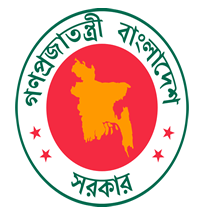Bangladesh: Government
Key Figures
- Chief of State:
- President Mohammad Shahabuddin Chuppi
- Head of Government:
- Currently vacant
Overview
- Government Name:
- People's Republic of Bangladesh
- Constitution:
- Adopted: 1972; Declares the fundamental rights and freedoms of its citizens, states the fundamental principles of state policy, establishes structure and functions of the three branches of government (executive, legislative, judicial). It also proclaims nationalism, democracy, socialism, and secularity as national ideals.
- Government Type:
- Parliamentary Democracy

Index of Economic Freedom
Country Risk Rating
Government Branches
| Main Powers | Election Process | Election Cycle 1 | |
|---|---|---|---|
| Executive | The constitution allows the president to act only upon the advice of the prime minister and cabinet. They are responsible for the appointments of various officials and can refuse to assent to any bill passed by parliament but send it back for review. They also act as the chancellor for various universities. The prime minister is collectively accountable for their policies and actions to the parliament, to their political party, and ultimately to the electorate. As of August 2024, the Prime Minister has resigned, and the army is in talks to form a new government. |
The president is elected by national parliament. The prime minister is appointed by the president. |
President: 5 years; Prime Minister: no term limits |
| Judicial | The supreme court is the highest judicial power. |
Supreme court judges are appointed by the president. |
Mandatory retirement age of 67 |
| Legislative | The unicameral national parliament or Jatiya Sangsad(House of the Nation) are tasked with carrying out foreign and domestic policies. After the Prime Minister Sheikh Hasina Wazed resigned the House of the Nation has been dissolved. |
300 seats (45 reserved for women) are elected by popular vote from single territorial constituencies. |
5 years |
Regional Trade Blocs
International Organization Participation [2]
Environmental Agreements [3]
Tax Information [2]
- Tax Authority:
- Information not available
- Tax Name:
- Information not available
Sources:
- ElectionGuide http://www.electionguide.org/
- EY, http://www.ey.com
- CIA World Factbook, https://www.cia.gov/the-world-factbook/
- U.S. Bilateral Relations Fact Sheets http://www.state.gov/r/pa/ei/bgn/


